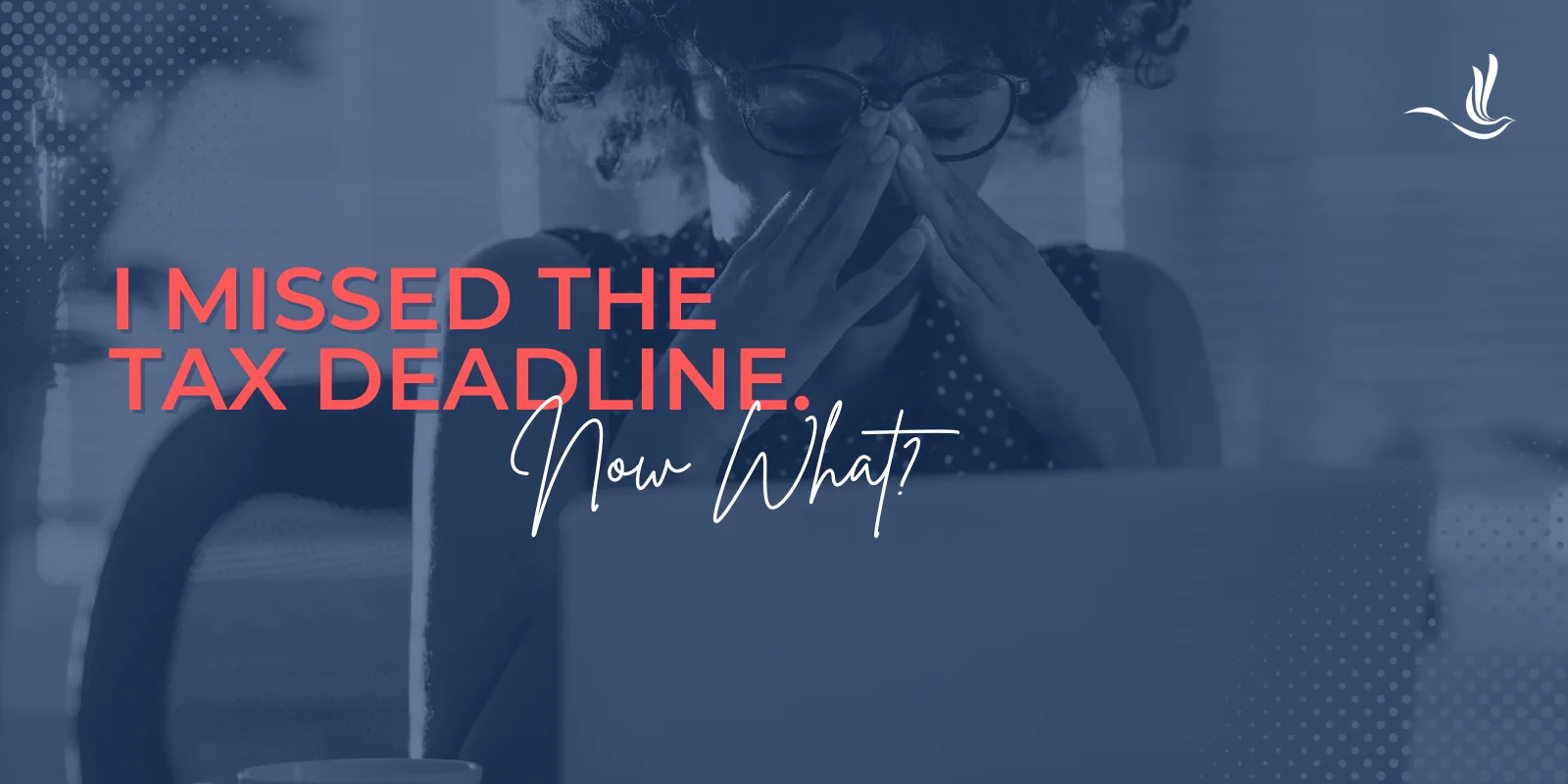Missing the tax deadline can feel overwhelming, especially if you’re not sure what happens next. Whether you forgot, ran out of time, or just didn’t have the funds to pay what you owed, you’re not alone—and you still have options. Each year, millions of taxpayers miss the April deadline for a variety of reasons. The good news is that missing the tax deadline doesn’t mean you’re out of luck. The key is to act quickly, understand your responsibilities, and take the necessary steps to fix the situation. Let’s walk through what you should do if you missed the tax deadline and how to minimize any penalties or long-term consequences.
Determine If You Owe Taxes or Expect a Refund
The first thing you should do is figure out whether you’re likely to owe the IRS money or if you’re due a refund. This will help determine the urgency and potential consequences of missing the tax deadline.
If You Expect a Refund
If you’re expecting a refund, you’re in a much better position. The IRS does not charge any penalties or interest if you file your return late and you’re owed money. However, that doesn’t mean you should delay indefinitely. You have up to three years from the original due date of the tax return to file and claim your refund. After that, your refund is forfeited and becomes the property of the U.S. Treasury. For example, if you were supposed to file your 2024 tax return by April 15, 2025, you have until April 15, 2028, to file and claim any refund. After that, it’s gone for good.
If You Owe Taxes
If you owe taxes and missed the deadline, the situation becomes more urgent. The IRS will begin charging both late filing and late payment penalties, as well as interest on your unpaid balance. In this case, it’s essential to take action as soon as possible to limit the financial impact.
File as Soon as Possible
Even if the deadline has passed, it’s important to file your tax return as soon as you can. Every day that passes increases the potential penalties and interest. The IRS encourages late filers to submit their returns as quickly as possible, regardless of whether they can pay in full.
Filing quickly reduces the “failure-to-file” penalty, which is typically much higher than the “failure-to-pay” penalty. For example, the failure-to-file penalty is 5% of your unpaid taxes for each month your return is late, up to a maximum of 25%. By comparison, the failure-to-pay penalty is only 0.5% of your unpaid taxes per month.
To illustrate, imagine you owed $5,000 and waited six months to file. You could be hit with a $1,250 failure-to-file penalty, in addition to interest and late payment penalties. But if you filed even a month after the deadline, your penalty would be capped at $250, saving you $1,000 right off the bat. If you don’t have all your documents or need more time to gather them, it’s still worth filing a partial return or amending later if necessary. Filing something is better than nothing.
Understand the Penalties and Interest
Missing the tax deadline can result in multiple types of penalties, depending on how late you file and whether you pay your balance in full.
Failure-to-File Penalty
The most severe penalty for missing the deadline is the failure-to-file penalty. This is calculated at 5% of the unpaid taxes for each month (or part of a month) that your return is late. After five months, this penalty maxes out at 25% of the unpaid tax amount.
Failure-to-Pay Penalty
If you owe taxes and don’t pay by the deadline, the IRS charges a separate failure-to-pay penalty. This penalty starts at 0.5% of the unpaid taxes per month, up to a maximum of 25%. If both the failure-to-file and failure-to-pay penalties apply in the same month, the 5% failure-to-file penalty is reduced by the 0.5% failure-to-pay penalty, for a combined maximum of 5%.
Interest on Unpaid Taxes
In addition to penalties, the IRS also charges interest on any unpaid taxes. The interest rate is currently 7% and compounds daily, meaning the longer you wait to pay, the more it adds up.
What If You Can’t Pay What You Owe?
It’s a common misconception that you should wait to file until you can pay in full. In reality, it’s always better to file on time or as soon as possible, even if you can’t pay the entire amount. The IRS offers several payment options to help taxpayers manage their balances.
Short-Term Payment Plans
If you can pay off your tax debt within 180 days, you may qualify for a short-term payment plan. These plans don’t require a formal agreement and can often be set up online. You’ll still be charged interest and late payment penalties, but the failure-to-file penalty won’t apply if you file your return.
Long-Term Installment Agreements
If you need more than 180 days to pay, you can request a long-term installment agreement. This allows you to make monthly payments over time, and as long as you stay current with your installments, the IRS generally won’t take enforced collection actions like levies or garnishments. For instance, if you owe $7,500 and need 24 months to pay it off, the IRS may allow you to make monthly payments of around $312, plus accrued interest.
Other Options for Financial Hardship
In cases of severe financial hardship, you may qualify for alternative solutions such as an Offer in Compromise (OIC), which allows you to settle your tax debt for less than the full amount you owe. Alternatively, you might qualify for Currently Not Collectible status if you can prove you have no ability to pay, though interest will still accrue.
Consider Penalty Relief Options
If you’ve never been in trouble with the IRS before, you may qualify for penalty relief. The IRS offers a few different avenues for waiving penalties under certain conditions.
First-Time Penalty Abatement
The IRS offers first-time abatement (FTA) for taxpayers who have a clean compliance history. To qualify, you must have filed all required returns and paid or arranged to pay any taxes due. FTA can be used to remove failure-to-file, failure-to-pay, or failure-to-deposit penalties for one tax period.
Reasonable Cause Relief
If you have a legitimate reason for filing or paying late, such as a serious illness, natural disaster, or other unforeseen event, you may qualify for reasonable cause relief. The IRS will evaluate your situation based on documentation, timelines, and whether you took reasonable steps to file or pay on time.
Stay on Top of IRS Notices and Future Deadlines
After missing the tax deadline, it’s important to keep an eye out for any IRS correspondence. Notices will outline your balance, penalties, or next steps—and ignoring them can lead to more serious consequences, like liens or levies. Open every letter, read it carefully, and respond by the deadlines listed to avoid further issues.
To prevent missing deadlines in the future, set calendar reminders, organize tax documents as they arrive, and consider working with a tax professional. If you know you’ll need more time next year, file an extension before the deadline. Being proactive now can save you time, money, and stress down the line.
When to Contact a Tax Professional
Not all tax situations require professional help, but if your tax debt is significant, if you’re facing penalties or liens, or if you’ve missed multiple deadlines, it’s wise to consult a tax expert. A tax professional can help you understand your options, negotiate with the IRS on your behalf, and make sure you’re taking advantage of every available relief provision.
For example, if you owe over $10,000 and can’t afford to pay, a professional can help you determine whether you qualify for an Offer in Compromise or another type of resolution. They can also assist with penalty abatement requests or represent you in communications with the IRS to reduce your stress and risk.
Tax Help for Those Who Missed the Tax Deadline
Missing the tax deadline isn’t ideal, but it’s not the end of the world. The most important thing you can do now is act. File your return, even if it’s late. Pay as much as you can, even if it’s not the full balance. Respond to IRS notices and stay engaged with the process. Every step you take toward resolving your tax situation will help reduce penalties, interest, and stress. If you feel stuck or overwhelmed, don’t hesitate to reach out for help. The IRS offers tools to assist taxpayers, and tax professionals can provide guidance tailored to your unique situation. Optima Tax Relief is the nation’s leading tax resolution firm with over a decade of experience helping taxpayers with tough tax situations.
If You Need Tax Help, Contact Us Today for a Free Consultation
Publisher: Source link









